The Azores stand out as a top global spot for encountering the beauty of whales in their natural setting. Whale-watching in the Azores is a unique experience, offering travelers the chance to witness these majestic creatures in their natural habitat. The Azores, a group of volcanic islands in the North Atlantic Ocean, are renowned for their rich marine biodiversity and abundance of whales. Azores offers an unforgettable whale-watching adventure in the Azores.
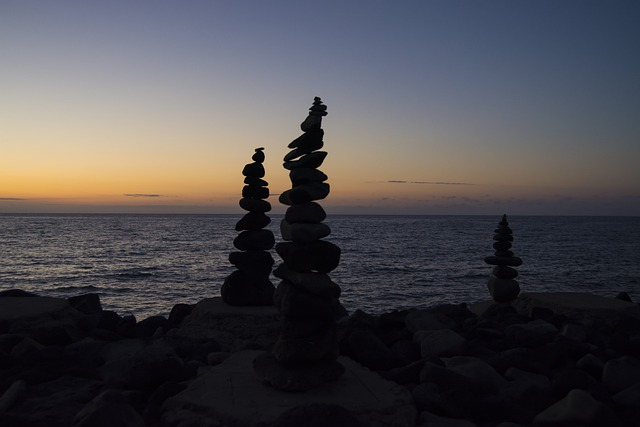
Why Azores Is a Perfect Destination for Whale Watching?
The Azores' strategic location in the Atlantic Ocean makes it an ideal destination for whale watching.
Its deep waters, rich in nutrients, attract an abundance of marine life, including numerous whale species.
The archipelago serves as a vital waypoint for these majestic creatures during their migration routes, offering ample opportunities for sightings throughout the year.
Moreover, the Azores boasts a unique blend of favorable geographical features, including underwater cliffs, canyons, and upwellings, which create nutrient-rich waters, attracting a diverse array of marine species.
This abundance of food sources sustains a thriving ecosystem, making the Azores an irresistible haven for whales seeking nourishment during their migrations.
Whale watching in the Azores is a mesmerizing experience that brings you face-to-face with some of the ocean's most majestic creatures.
Situated in the heart of the Atlantic Ocean, the Azores Islands are home to a diverse array of marine life, making it a hotspot for cetacean enthusiasts.
From the imposing blue whales to the sleek fin whales and the iconic sperm whales, these gentle giants can often be spotted breaching the surface or gliding gracefully through the azure waters.
Joining the spectacle are playful bottlenose dolphins and Atlantic spotted dolphins, their sleek forms darting through the waves alongside the larger cetaceans.
With the Gulf Stream nearby, the nutrient-rich waters attract a rich abundance of marine life, including Risso's dolphins and common dolphins, adding to the thrill of your adventure.
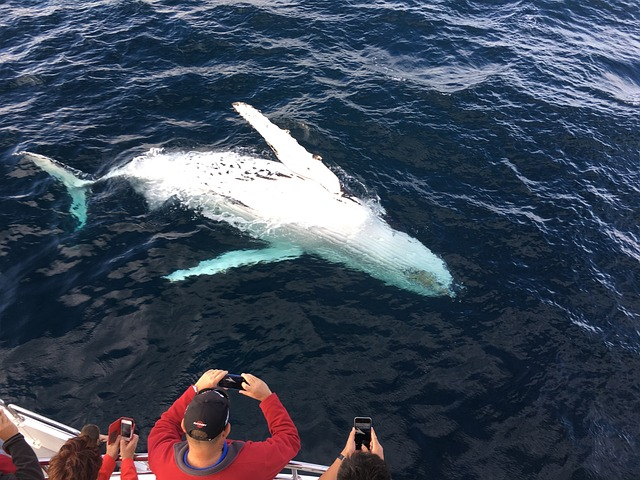
Best Time to Go Whale Watching in the Azores
While whale watching is possible in the Azores year-round, the best time to embark on this adventure is during the warmer months, from April to October.
This period coincides with the prime season for whale sightings, as many species migrate through the region in search of food and breeding grounds.
During these months, the waters of the Azores teem with life, offering enthusiasts the opportunity to witness a diverse array of whale species in their natural habitat.
From the majestic blue whale, the largest animal on the planet, to the acrobatic humpback whale, visitors can expect thrilling encounters with these marine giants during their migration.
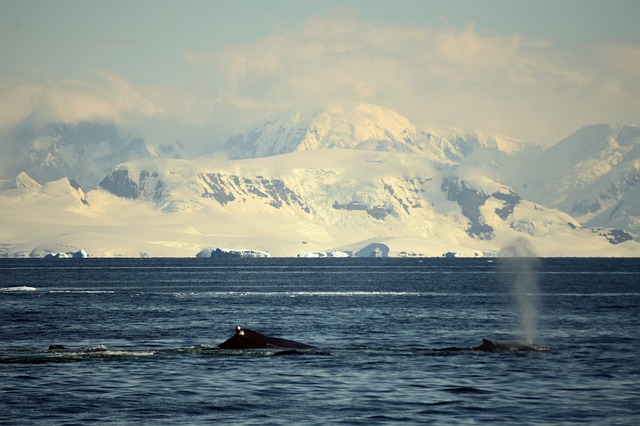
Different Types of Whales You Can Spot in the Azores
Different types of whales you can spot in the Azores are Sperm whales, Blue whales, Fin whales, Humpback whales, and Pilot whales.
As I embarked on a whale-watching excursion in the Azores, I was amazed by the diversity of marine life.
The nutrient-rich waters surrounding the Azores attract these magnificent creatures year-round. Sperm whales are particularly common in the area, often seen diving gracefully beneath the surface.
Blue whales, the largest animals on the planet, are also occasionally spotted during certain times of the year.
The opportunity to witness these majestic creatures in their natural habitat is truly awe-inspiring.
Sperm Whale
The Azores is renowned for its resident population of sperm whales, which can be spotted throughout the year.
These iconic whales are easily recognizable by their large, square-shaped heads and distinctive blowholes, which produce a unique spout when they surface to breathe.
Sperm whales are known for their deep dives in search of squid, often plunging to depths of over 1,000 meters.
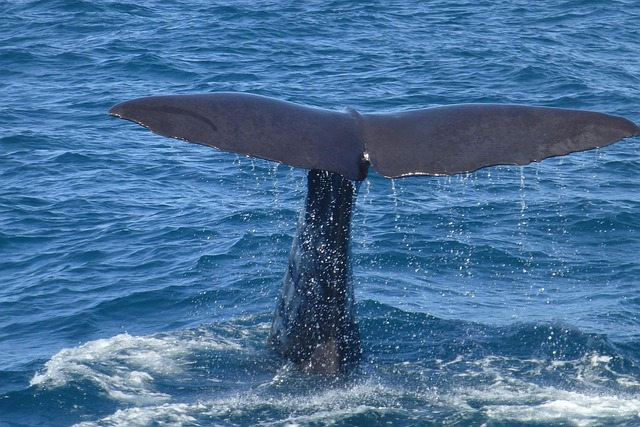
Blue Whale
The blue whale, the largest animal ever to have lived on Earth, graces the waters of the Azores during its migration routes.
These magnificent creatures can grow up to 100 feet in length and weigh as much as 200 tons. Despite their massive size, blue whales are elusive and sightings are rare, making each encounter a truly unforgettable experience.
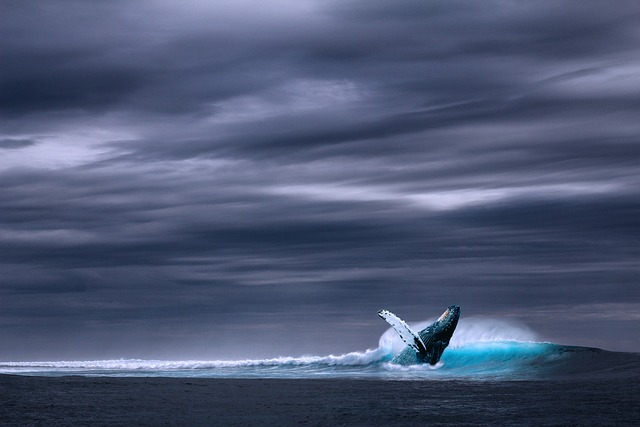
Fin Whale
With their sleek bodies and distinctive coloration, fin whales are a common sight in the waters of the Azores.
These graceful giants can reach lengths of up to 80 feet and are known for their impressive speed, capable of swimming at speeds of up to 25 miles per hour.
Fin whales are often spotted feeding on krill and small fish in the nutrient-rich waters of the archipelago.
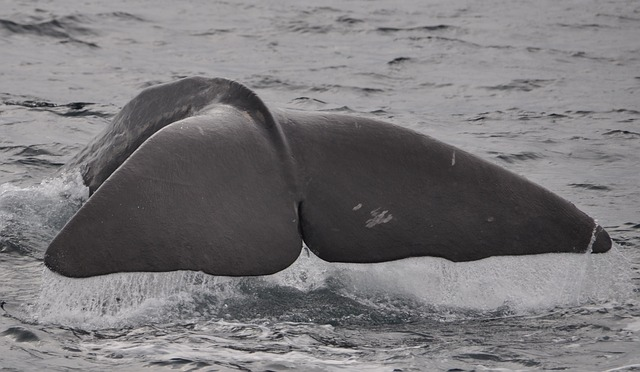
Humpback Whale
Known for their acrobatic displays and haunting songs, humpback whales are a favorite among whale watchers in the Azores.
These charismatic creatures can be seen breaching, tail slapping, and spy hopping, showcasing their playful behavior.
Humpback whales migrate through the Azores during the spring and summer months, providing ample opportunities for sightings.
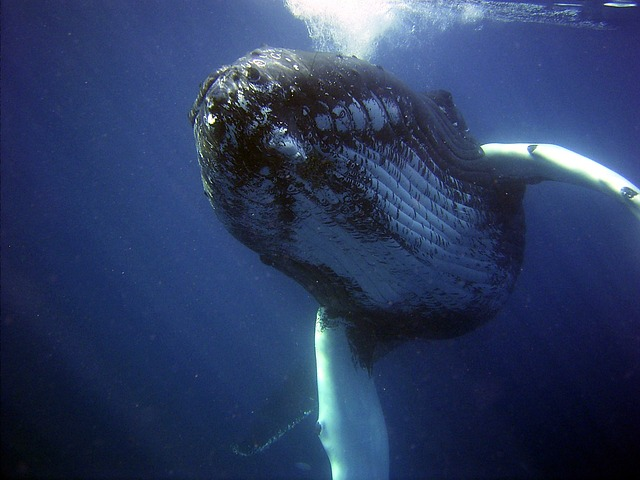
Pilot Whale
Forming tight-knit social groups known as pods, pilot whales are a common sight in the waters of the Azores.
These intelligent creatures are easily recognizable by their bulbous heads and distinctive dorsal fins.
Pilot whales are known for their curious nature and can often be seen swimming alongside boats, providing visitors with unforgettable encounters.
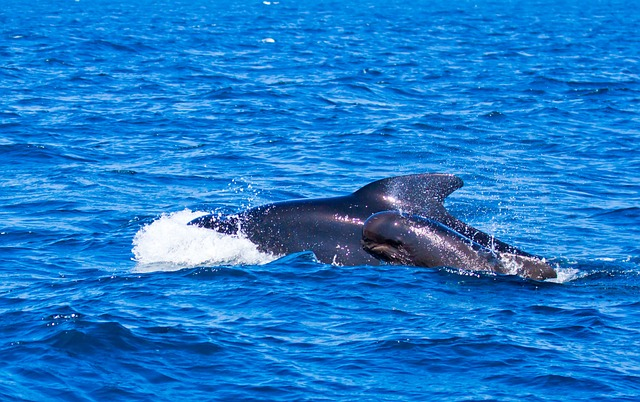
Popular Whale-Watching Spots in the Azores
Popular Whale watching spots in the Azores are Sao Miguel, Pico Island, Faial, Terceira, and Santa Maria.
As I embarked on my own whale-watching adventure in the Azores, I discovered that each island offers unique opportunities to spot these magnificent creatures.
Pico Island, in particular, is renowned for its deep waters and abundance of marine life, making it an ideal spot for encountering whales.
Faial Island is another popular destination, known for its strategic location along whale migration routes.
São Miguel Island boasts diverse habitats, from volcanic landscapes to lush forests, providing opportunities to see whales in a variety of settings.
Meanwhile, Terceira Island offers whale watching excursions that depart from its charming coastal towns, providing easy access to prime whale watching areas.
These popular spots in the Azores offer unforgettable experiences for whale watching enthusiasts.
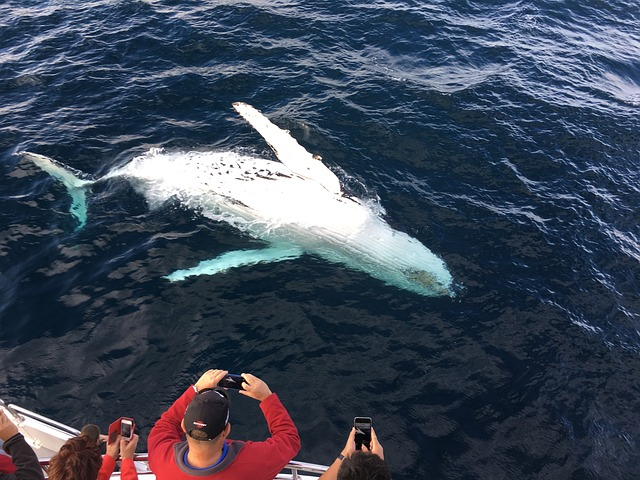
Sao Miguel
The largest island in the Azores, Sao Miguel, offers numerous whale watching opportunities departing from its coastal towns, such as Ponta Delgada.
Visitors can embark on guided tours that explore the island's surrounding waters, where sightings of sperm whales, dolphins, and other marine life are common.
São Miguel Island, in particular, offers prime opportunities for Azores whale watching, as it sits within the natural habitat of numerous species.
Pico Island
Renowned as one of the best whale watching destinations in the Azores, Pico Island boasts a rich marine biodiversity and stunning coastal scenery.
Whale watching tours departing from Pico Island often encounter sperm whales, fin whales, and dolphins, providing visitors with unforgettable wildlife experiences.
Faial
Known as the "Whale Watching Island," Faial is a hotspot for whale watching enthusiasts.
Its strategic location along whale migration routes ensures thrilling encounters with a variety of whale species, including blue whales, humpback whales, and pilot whales. Visitors can enjoy guided tours departing from Faial's charming port towns, such as Horta.
Terceira
From the historic capital of Angra do Heroísmo, visitors can embark on whale watching excursions that explore the waters surrounding Terceira Island.
These tours often encounter sperm whales, fin whales, and playful dolphins, providing visitors with memorable wildlife experiences against the backdrop of Terceira's scenic coastline.
Santa Maria
With its clear blue waters and abundant marine life, Santa Maria offers a tranquil setting for whale watching adventures.
Visitors can explore the island's coastal waters on guided tours that often encounter sperm whales, pilot whales, and various species of dolphins, providing an immersive wildlife experience for nature enthusiasts.
What are the Prices for Whale Watching Tours in the Azores?
Whale-watching tour prices in the Azores vary depending on several factors, including the duration of the excursion, the type of vessel used, and additional amenities provided.
On average, expect prices to range from €50 to €100 per person for a standard whale-watching tour.
Some operators may offer premium packages with added perks such as onboard refreshments or extended tour durations, which may incur higher costs.
It's essential to research and compare different tour operators to find the best option that suits your budget and preferences.
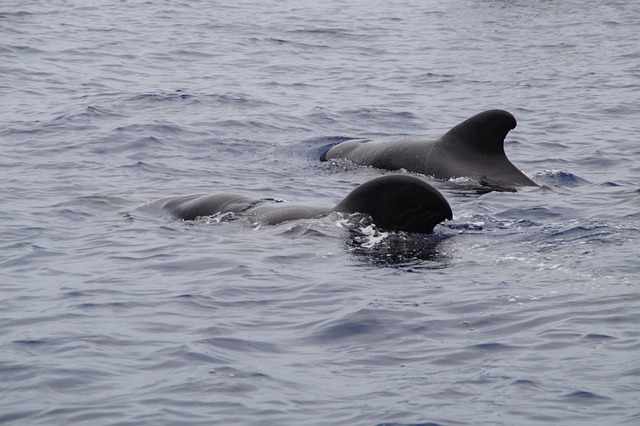
Frequently Asked Questions On Whale Watching Azores
1. What should I bring on a whale watching tour?
It's advisable to bring sunscreen, a hat, sunglasses, comfortable clothing, and a camera to capture the memorable moments. Binoculars can also enhance your whale watching experience by allowing you to observe distant sightings more closely.
2. Are whale sightings guaranteed?
While sightings are common during the prime season, they are subject to nature's whims. Tour operators strive to maximize sightings by utilizing their knowledge of whale migration patterns and collaborating with local experts.
3. Are whale watching tours eco-friendly?
Yes, most whale watching operators in the Azores adhere to strict eco-friendly guidelines to minimize their impact on marine life and the environment.
4. Is it safe to go whale watching?
Yes, whale watching tours in the Azores are conducted by experienced guides who prioritize safety above all else.
5. Can children participate in whale watching tours?
Yes, many operators welcome children on their tours, providing life jackets and ensuring a family-friendly experience. There is also dolphin watching recommended for children in Azores.
